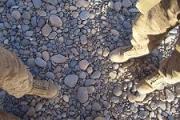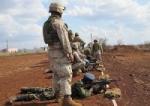...Afghanistan raises the same broad issues regarding what metrics to use in judging progress in Afghanistan that exists in Iraq. Like Iraq, the answers are complex and involve analysis and judgment down to the local level rather than bean counts at the national level:
•
Measuring the nature and intensity of the fighting: Counts of the level and type of attack are still useful, particularly if they cover the full range of attacks by type, are broken out at least down to the province level, and are tied to the level of enemy progress or defeat in controlling the countryside. Overt violence, however, is always an uncertain measure of insurgent activity and success....
•
“Mapping” control of the population and area: Last year, the Taliban won in terms of population and area even though it lost virtually every tactical encounter. This year, it is still too early to tell, at least from unclassified reporting...
•
The governance and services test: A related metric that is critical in armed nation building is to analyze and map whom actually governs where and what services do they provide. In broad terms, in a conflict like this, every area where the government does not actually govern or provide key services at best is vulnerable and often should be counted as lost. This is particularly true in Afghanistan, where central government has always tended to be distant, ineffective and corrupt...
•
Aid coverage, aid activity, and actual useful help: This raises a critical failing in both Afghanistan and Iraq: The almost total lack of honest and meaningful metrics and reporting by USAID, the Corps of Engineer, and similar actions by allied countries. Spending has never been a meaningful metric. Neither has reporting on projects completed without breakouts of the level of services provided by region relative to need...
•
Afghan National Army, Afghan National Police, and Afghan National Auxiliary Police development and presence: There are several different elements involved. As is the case in Iraq, the least important metric is how many people in each service have been trained and equipped. This effort is a vital means to an end, but success consists of having actual forces active in the field. In general, whenever the US government or Coalition authorities issue estimates of the number of people who should be there, this is really a confession of failure...
•
The local authority and militia test: That said, the Afghan government is at least 3-5 years away from a mix of governance, military, and police capabilities that can bring authority and security force? Is it really effective? Is it really friendly?...
•
Local perceptions: Polls are only one metric, but they are a critical one. If properly conducted, they show local loyalties and concerns. They correct the tendency to assume that enemies like the Taliban do not have strong popular followings in some areas, that NATO military action is not seen as hostile or a threat, and that people support a government that is not active simply because it was elected...
•
NATO effort by NATO country by region affected: No set of metrics is more useless in counterinsurgency and nation building than national totals and national averages. This is particularly true in the case of Afghanistan and Iraq, where regional and local differences are critical, and Coalition partners take different approaches to fighting and aid...
•
Losing by Winning Metrics: There are several additional areas where the US and NATO need to be far more sensitive to the negative impacts of their own operations and carefully measure such impacts through field reporting, public opinion polls, and other tests that are not linked to those actually planning and lementing such operations...












Bookmarks